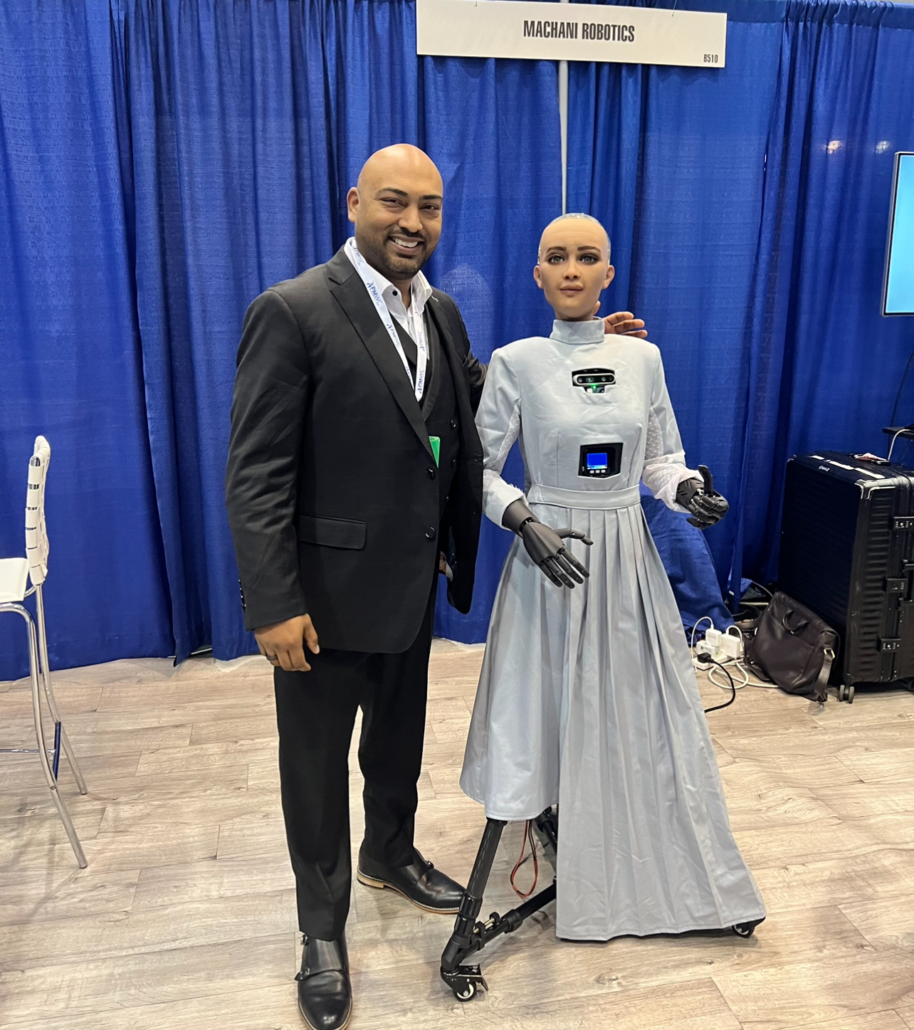Precision medicine, a groundbreaking approach to healthcare that tailors treatment to an individual, has revolutionized the medical field. It offers the promise of more effective and personalized care, transforming the way we prevent, diagnose, and treat diseases. In this blog post, we’ll delve into Dr. Bajnath’s (Dr. B) experience attending the prestigious Precision Medicine World Conference and explore the key insights and advancements shared at this groundbreaking event.
Precision Medicine World Conference
The Precision Medicine World Conference is an annual gathering of leading experts, researchers, clinicians, and industry professionals in the field of precision medicine. It serves as a platform to share knowledge, discuss emerging trends, and explore the latest innovations transforming the landscape of healthcare. The conference brings together minds from various disciplines to collaborate, learn, and drive progress in precision medicine.
Throughout the conference, attendees were treated to a range of captivating presentations and discussions. Renowned experts shared their insights on topics such as genomics, data analytics, AI-driven diagnostics, and breakthrough therapies. Notable speakers shed light on the latest research findings, innovative technologies, and new approaches to diagnosing and treating diseases.
Some notable takeaways included:
- The importance of integrating genomic data into clinical practice to improve patient outcomes.
- Exciting advancements in targeted therapies for various diseases, such as cancer and rare genetic disorders.
- The potential of precision medicine to revolutionize preventive care and early disease detection.

Promise of Precision Medicine
Imagine a future where medicine is not a one-size-fits-all solution but a customized approach tailored to each individual. This is the future of precision medicine, a promising area in healthcare that goes beyond the average patient’s expected response to consider their unique genes, environments, and lifestyles.
Historically, disease prevention and treatment methods have been based on the likely response of an average patient. While this approach is effective for some individuals and conditions, it falls short for others. Precision medicine is set to transform this paradigm with a more personalized approach.
This innovative approach is not a notion of an indistinct future; it’s happening right now. Millions of patients worldwide have already experienced the benefits of this medical shift that stemmed from extensive biomedical research.
One of the most successful applications of precision medicine has been in the field of oncology. Researchers are now identifying the molecular fingerprints of various cancers, dividing them from broad categories into far more precise types and subtypes. This breakthrough has been made possible due to decades of research led by the National Institutes of Health (NIH) which has also resulted in the development of several types of cancer immunotherapy drugs.
A significant goal of precision medicine is to implement this personalized strategy broadly in medical care – prescribing the right drug, at the right dose, at the right time for the right patient. This approach is expected to transform patient experiences, improve outcomes, and potentially reduce healthcare costs.
The promise of precision medicine extends beyond common diseases to rare ones. Despite being individually rare, these diseases collectively affect an estimated 25 to 30 million Americans. By applying precision medicine strategies, healthcare providers can drastically improve the diagnosis and treatment of these conditions.
Precision medicine holds immense potential. As our knowledge continues to expand, the promise of precision medicine will serve as a beacon for a future where treatment is personalized, prompt and effective.
About Us | Maryland Premier Longevity Center – Institute for Human Optimization
At the Institute for Human Optimization, our mission is to unlock the full potential of the human mind and body. We believe in the integration of cutting-edge scientific research, modern health practices, and individualized care to create a personalized path towards optimal health and well-being. With our multidisciplinary therapies and science led by Dr. Bajnath, work closely with each individual, guiding them towards achieving their health and wellness goals. We are committed to helping you live your most fulfilling life – a life optimized for happiness, health, and longevity.


